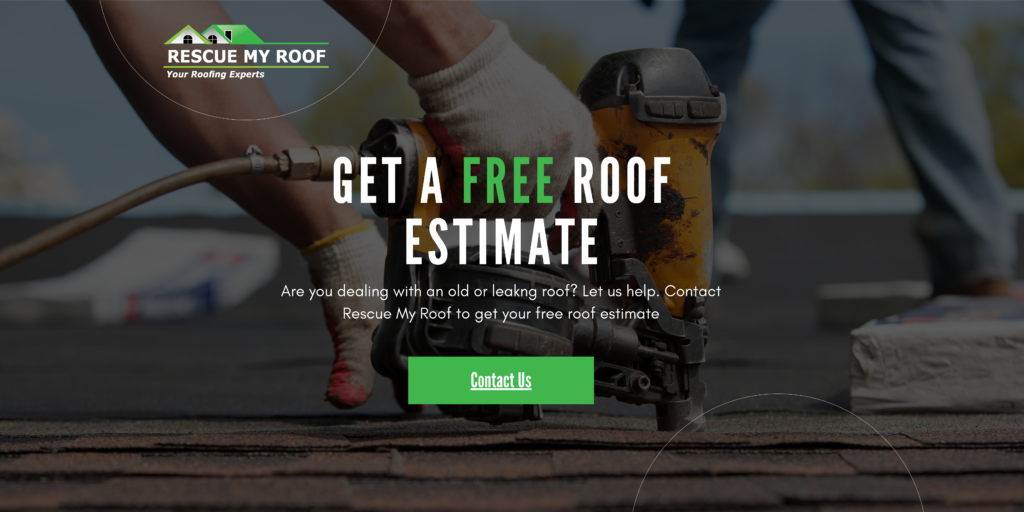Beware of Storm Chasers: Protect Your Roof and Your Wallet
When severe weather hits, homeowners are often left with the aftermath, including roof damage. During these times of distress, you may encounter storm chasers—contractors who travel from one storm-affected area to another, offering quick fixes for your roofing needs. While some may seem legitimate, many storm chasers can do more harm than good.
Rescue My Roof has been a leader in the roofing industry for over a decade. We’ve worked with hundreds of homeowners who have fallen victim to storm chasers. We’re here to prevent you from doing the same.
Here’s why you should beware of storm chasers and how to protect yourself and your home. Ultimately, you’ll know the red flags and how to avoid untrustworthy contractors.
Who Are Storm Chasers?

Storm chasers are roofing contractors who move from one storm-hit location to another, capitalizing on homeowners’ urgent need for repairs. They typically appear shortly after a major weather event, offering quick, inexpensive fixes.
Although some may be genuine, many lack the necessary experience, credentials, and long-term commitment to quality work.
Why You Should Be Wary of Storm Chasers
Storm Chasers are notorious in the roofing industry for low quality of work, but there are other reasons you should be hesitant to hire them.
1. Lack of Local Presence
Storm chasers often do not have a permanent local presence. They move to where the damage is, so they are not invested in the local community.
This can be problematic if issues arise after the work is done, as they may have already moved on to another location, leaving you with no recourse for follow-up or warranty claims.
2. Questionable Quality of Work
Because storm chasers operate on a volume basis, they prioritize speed over quality. This can result in subpar workmanship, leading to future problems. Roof repairs or replacements done hastily are more likely to fail, costing you more in the long run.
3. Lack of Proper Credentials

Many storm chasers do not have the proper licensing, insurance, or certifications required to perform roofing work in your area. Hiring an unlicensed contractor can expose you to significant risks, including liability for injuries or damages and voided warranties.
4. Pressure Tactics
Storm chasers often use high-pressure sales tactics to secure work quickly. They might tell you that immediate action is necessary and that their offer is a limited-time deal. This pressure can lead to hasty decisions without adequately vetting the contractor.
5. Insurance Scams
Some storm chasers may engage in insurance fraud, promising to handle your insurance claim but inflating the cost of repairs or submitting false claims. This can lead to legal complications and increased premiums for you.
How to Protect Yourself from Storm Chasers
1. Research and Verify
Before hiring a contractor:
- Do your homework.
- Verify their credentials, including licensing and insurance.
- Check online reviews and ask for references from past customers.
A reputable contractor will have a track record of satisfied clients and be willing to provide proof of their qualifications.
2. Seek Local Recommendations
Choose a contractor with a strong local presence. Local contractors are more likely to be invested in their reputation within the community and will be available for follow-up work. Ask friends, neighbors, and family for recommendations, or check with local roofing associations.
3. Get Multiple Estimates
Don’t settle for the first offer you receive. Get estimates from multiple contractors to compare prices and services. Be wary of quotes that seem too good to be true, as they often are.
4. Check for Manufacturer Certifications
Reputable roofing contractors often have certifications from roofing material manufacturers. These certifications indicate that the contractor has undergone training and meets the manufacturer’s standards for installation quality.
5. Avoid High-Pressure Sales Tactics
Take your time to make an informed decision. A reputable contractor will understand your need to think it over and will not pressure you into making a hasty decision.
6. Understand Your Insurance Policy
Review your homeowner’s insurance policy to understand what is covered and the process for filing a claim. Be wary of contractors who offer to handle your insurance claim for you, especially if they suggest inflating the claim amount.
Prioritize Quality and Trustworthiness
While the urgency to repair storm damage is understandable, it is crucial to prioritize quality and trustworthiness when selecting a roofing contractor. Storm chasers may offer quick fixes, but the risks associated with their services often outweigh the benefits.
By taking the time to research, verify credentials, and choose a reputable local contractor, you can ensure that your roof is repaired correctly and will stand up to future weather events. Protect your home and investment by being vigilant and making informed decisions about your roofing needs.
Learn more with “How to Ensure A Roofing Company is Legit” and “7 Signs of a Bad Roofing Contractor.”
Have you faced recent storm damage in southeastern Wisconsin? Rescue My Roof can help.
With over a decade of experience and 100+ five-star reviews, we are recommended by Wisconsin homeowners to do your roof, siding, or gutter replacements. Contact us today to get a free estimate.


